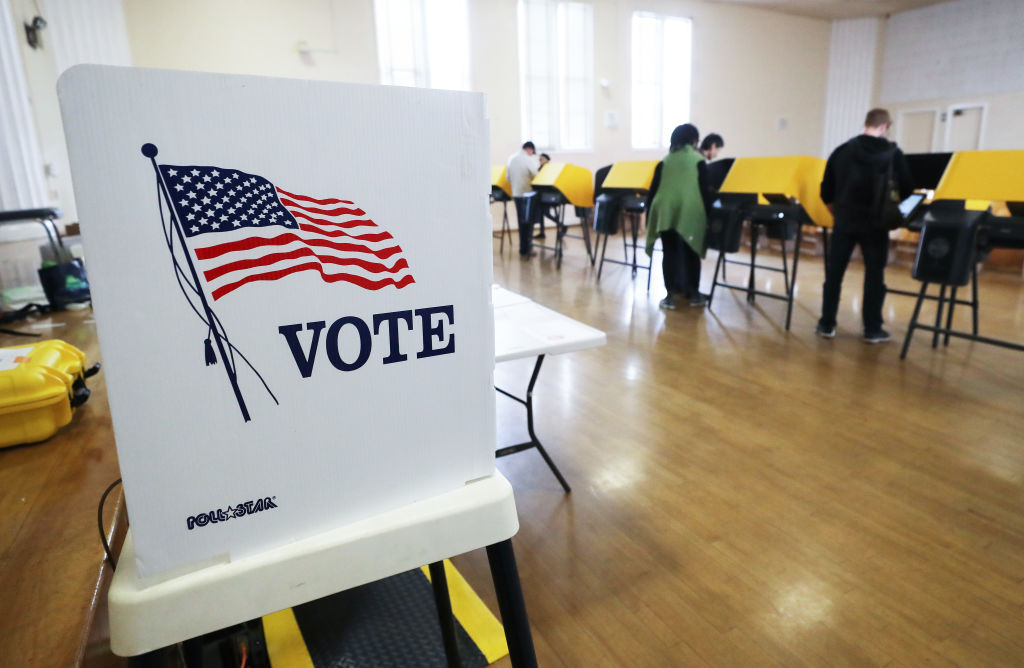‘Democracy is on the ballot’ has been a Democratic phrase of choice throughout the 2020 campaign. Well, in Pennsylvania, the State Supreme Court has kicked the Green party off the presidential ballot, following a lawsuit from the state Democratic party.
The Greens’ sin? Pennsylvania state law requires that third parties submit 5,000 signatures to appear on the ballot, together with an affidavit of candidacy. But the Greens, to their misfortune, faxed in their affidavit while turning in the signatures by hand.
This might seem like a trivial error, the sort that could be fixed with a quick email before heading out to lunch. Nobody seems to be disputing the Green party gathered enough signatures, and while the party is small, it is hardly non-existent: In 2016 Jill Stein got 0.8 percent of the vote in Pennsylvania, some 50,000 votes.
But no. Democrats declared the very lifeblood of democracy to be in peril if the Greens received a ballot slot. Letting people back a Green candidate may, in fact, be even more dangerous than requiring an ID card to vote. So the party sued, and on Thursday the Supreme Court agreed that the only solution for the Greens’ botched affidavit was missing the whole election. The same day, the Court also ruled that mail-in ballots must be counted until three days after the election, even if they have no postmark proving authenticity.
So, just to make sure everything is clear for Cockburn’s readers: possibly fraudulent ballots with no postmark are very good for democracy, but having the Green party as an option is very bad.
The assault on the anti-democratic Green party is a multi-state one.
On Monday, the Wisconsin Supreme Court ruled that the Green party will not be allowed on that state’s presidential ballot either. There, the party’s offense against democracy is that its vice presidential candidate moved halfway through the signature-collecting process, causing an old address to be present on some of the signature forms. The party was told they could simply update the signatures after the fact, but when the matter was brought before the Wisconsin election commission, they were denied the chance to do so, and instead simply kept off the ballot. When they sued, the State Supreme Court ruled that it was just too late to add them, since many counties would have to print modified ballots (very conveniently, while it is too late in Wisconsin to add a party to the ballot, it is not too late in Pennsylvania to remove the same party!).
And so, off the ballot the Greens go, despite getting more than 1 percent of the vote in 2016.
And that, of course, is exactly the point. Democrats blame Jill Stein and the Greens for their 2016 defeat, reasoning that the party’s far-left supporters were mostly siphoned away from Hillary Clinton. So, the gears in their head have gradually turned to the solution: if the Green party could simply be banned, then that will improve Joe Biden’s chances of winning. Because Joe Biden represents Democracy, then, banning the Greens is a Victory for Democracy, while letting people vote for their preferred party would be decidedly Bad for Democracy.
***
Get a digital subscription to The Spectator.
Try a month free, then just $3.99 a month
***
A few Twitter blue-checks were remarkably direct about this interpretation:
Hallelujah!!!
Best news of the day, by a mile.
Absentee ballots in Wisconsin can be mailed as scheduled, now.
Plus there will be no Green Party spoiler on the ballot, so the choice will be crystal clear :
Fascism or democracy, Trump or Biden. https://t.co/nxAXPb6hKa
— Ady Barkan (@AdyBarkan) September 14, 2020
Rachel Maddow, meanwhile, gloated over successfully stopping a ‘Republican party scam.’ Maddow has, in the past, been very, very concerned about voter suppression, but this form of suppression is far more to her taste.
The Washington Post may declare that ‘Democracy Dies in Darkness,’ but the 2020 version seems to be ‘Democracy Dies in the Ballot Box.’

























